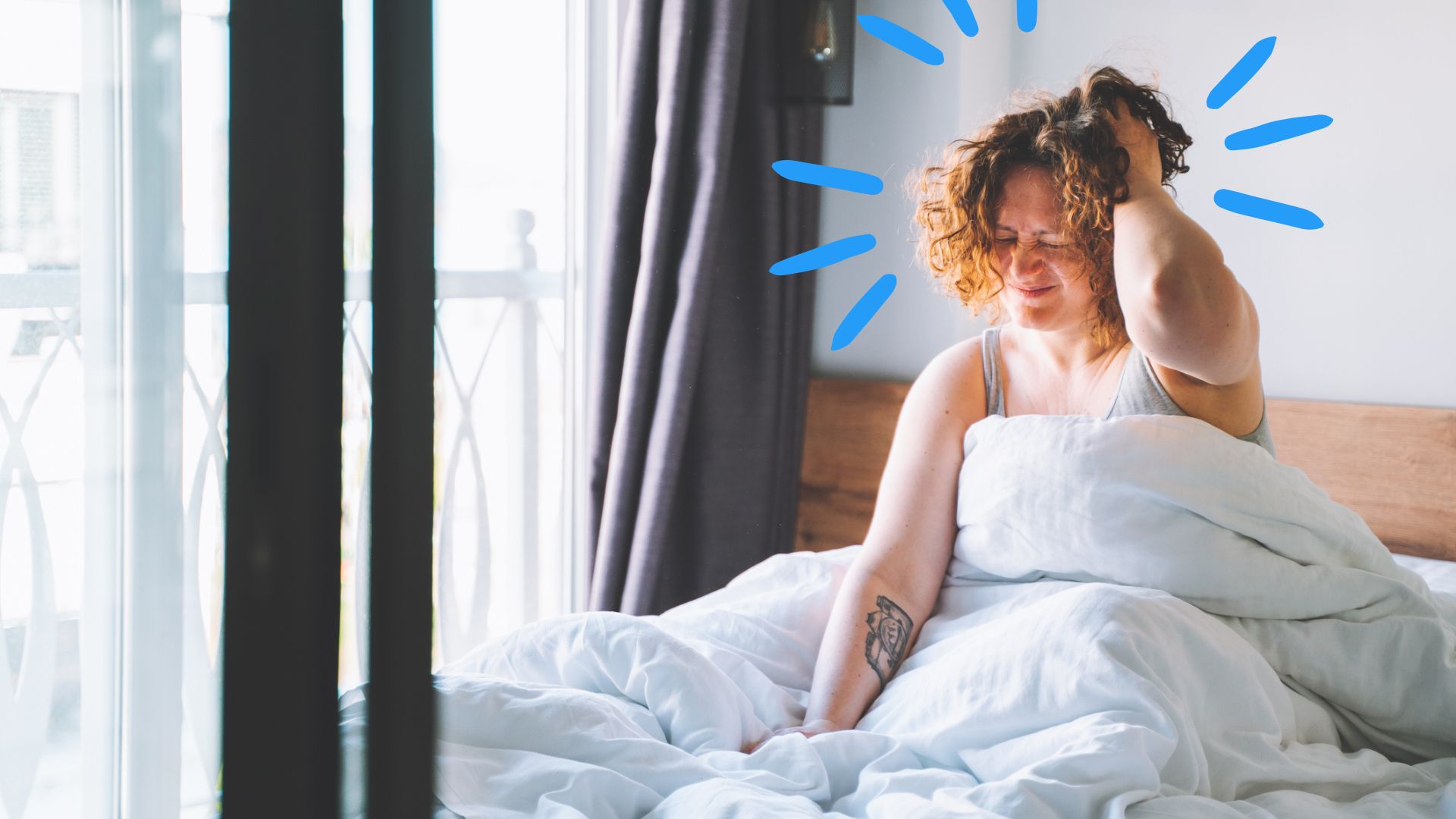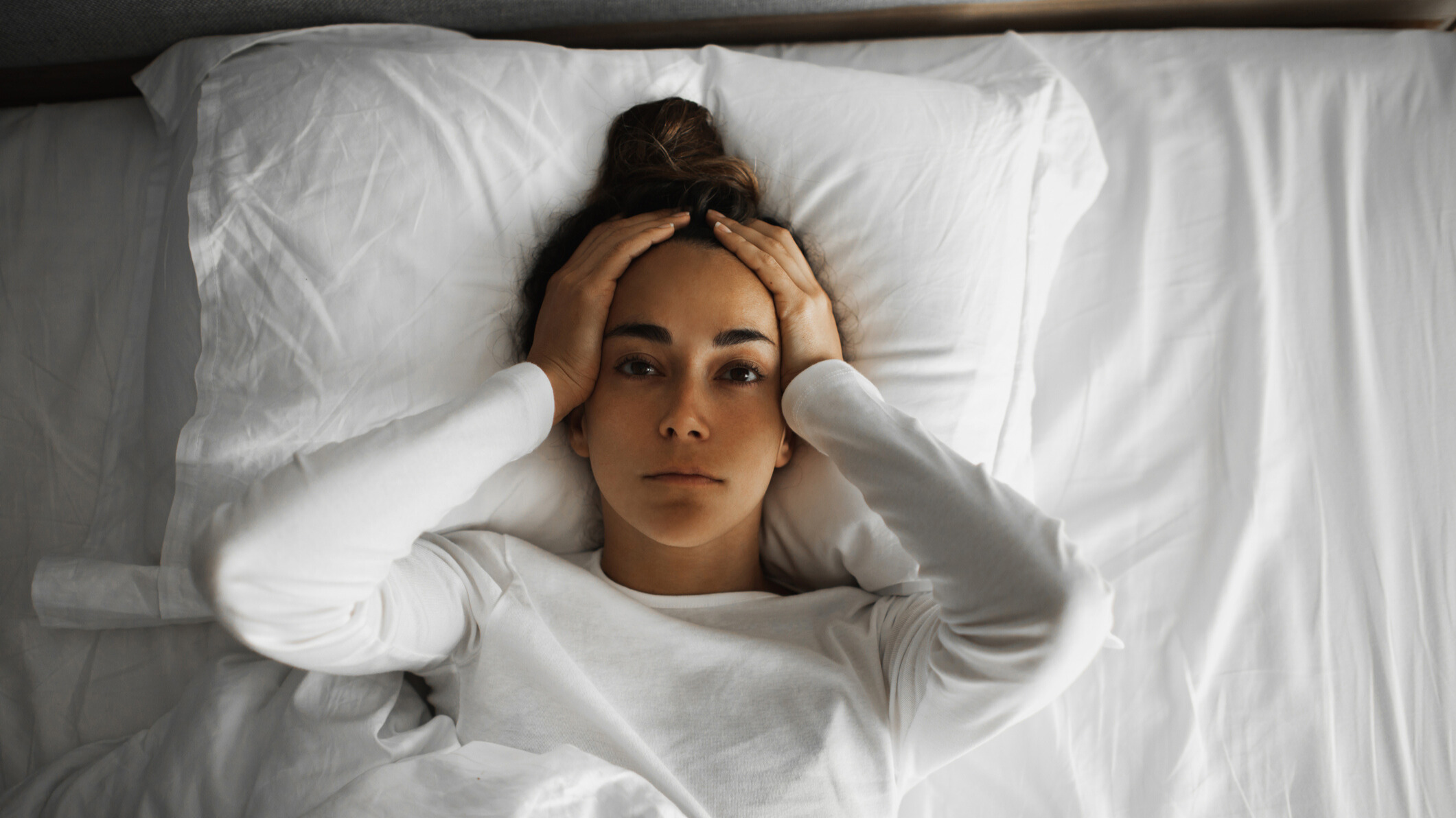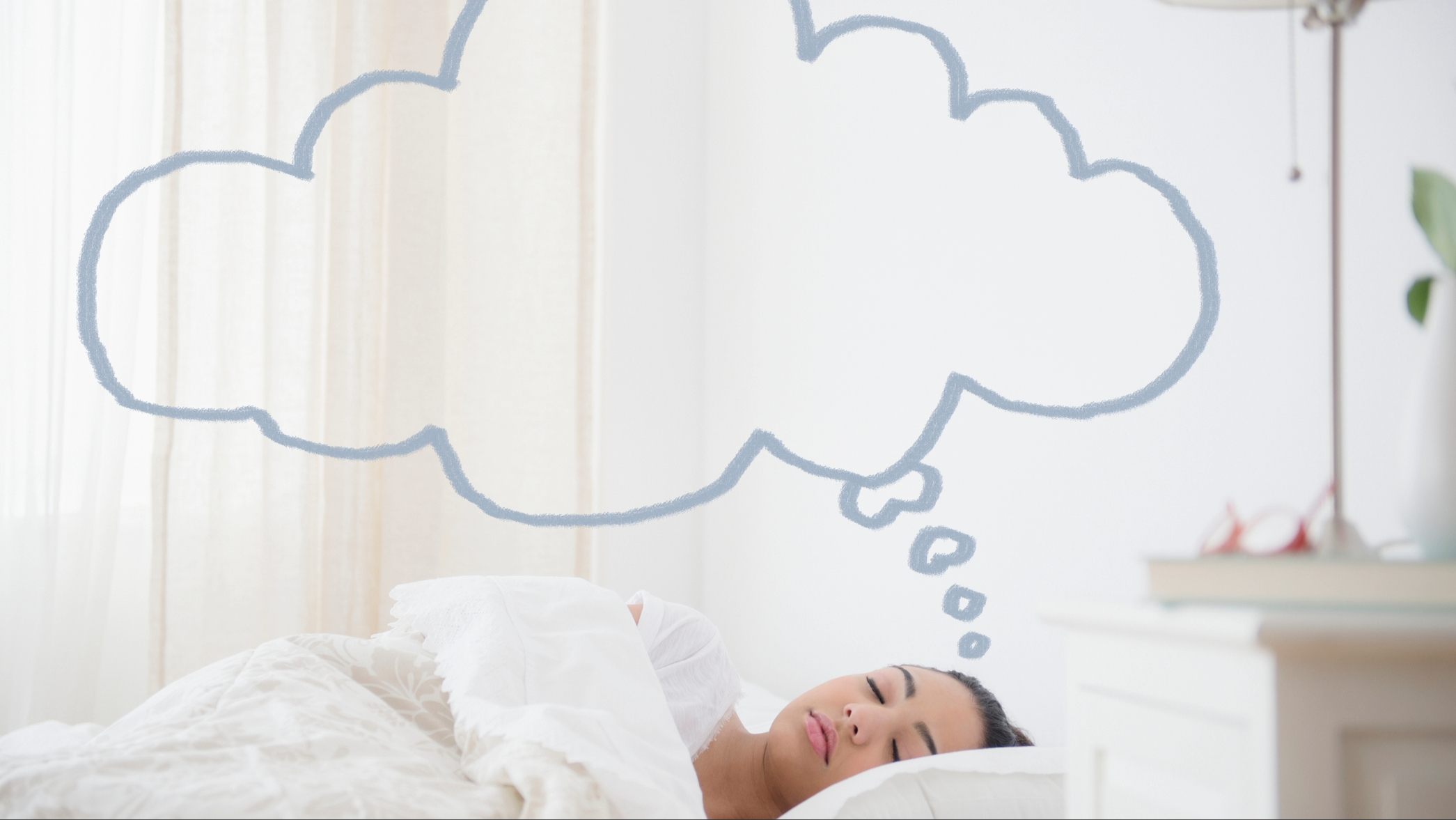Exploding head syndrome isn't as scary as it sounds — but it could be what's disrupting your sleep, doctors explain
At least 10% of people experience this parasomnia

If you’ve experienced loud crashing noises as you sleep, you could be experiencing exploding head syndrome.
This unsettling phenomenon is a type of sleep disturbance that, while harmless, can feel frightening as you wake up.
Those who experience it report hearing gunshots, cymbals, or even voices as they drift off or wake up. Researchers believe it’s linked to the brain and can be exacerbated with stress, fatigue and disrupted sleep patterns.
We're taking a closer look at the latest research and talking to experts to explore what exploding head syndrome is, its most common symptoms and possible triggers, and finally, the steps you can take to calm your mind and help prevent the sleep syndrome.
What is exploding head syndrome?
Exploding head syndrome (EHS), also known as a parasomnia, is a sleep disorder where you hear a sudden loud noise as you’re drifting off or waking up. And it’s thought to be caused by a ‘misfire’ in the brain as it shifts between sleep and wake.
The parasomnia may have a ‘dramatic name’, says Dr. Chelsea Perry, diplomate of the American Board of Dental Sleep Medicine, but it never results in ‘physical harm or pain’.

But it can be quite disturbing when you experience it. “The disorder produces loud bangs and crashes and explosions that are experienced during sleep transitions,” she explains.
Get instant access to breaking news, the hottest reviews, great deals and helpful tips.
“People find it startling, yet this condition poses no risk to health, while primarily affecting sleep quality.”
So, how common is the disorder? Around 10-15 per cent of us, according to this study, have suffered from the sleep disorder, but EHS didn't have an official name until 10 years ago. However, medical records show that the condition could date back to the early 1900’s.
Symptoms of exploding head syndrome
One of the main symptoms of the condition includes “sudden loud explosive noises that sound like an explosion or crash or gunshot,” says Perry, adding that this can happen due to the shutdown of the brain becoming disrupted.
“This condition causes brain neurons that process sound to generate the sensation of loud noises during the transition phase,” she explains.
Fear is also a common symptom. In fact, research found that 44% of people with EHS reported experiencing “significant fear” after waking up from the sudden, loud noise.
Other symptoms could include:
- Light flashes
- Involuntary muscle movement
- Sleep disturbances
- Daytime sleepiness

What causes exploding head syndrome?
As the sleep disorder is still so new, researchers aren’t completely clear on its cause; however, the main theory, says Perry, is to do with the disruption of the brain as we fall asleep.
“The brain follows a structured shutdown procedure that involves different brain regions during different stages,” the doctor says.
“So EHS is more likely to occur when the brain's normal rhythms get disrupted because of stress and poor sleep habits, plus additional sleep disorders.”

Sleep deprivation can be a big cause of the condition, says Caitlin Shure, a sleep and neurotech expert at NextSense.
“Lack of rest heightens stress on the nervous system, making the brain more prone to misfiring during transitions into sleep,” Shure explains.
Irregular sleep patterns can also make us more prone to the condition. “When the circadian rhythm is disrupted, the brain struggles to transition smoothly between wakefulness and sleep,” she continues.
“This instability increases the likelihood of neural ‘misfires in the brainstem’, where sensory processing is controlled, leading to the sudden perception of an explosion.”
How to stop exploding head syndrome
As EHS is caused by lack of sleep, stress and anxiety, lifestyle changes, which help you ease into sleep more peacefully, could help.
Practise good sleep hygiene
Good sleep hygiene creates a “stable sleep environment and consistent rhythms, which reduces the likelihood of the brain misfiring during sleep transitions,” says Shure.
So, what exactly is good sleep hygiene? “Prioritizing a regular bedtime and wake time helps regulate circadian rhythms, while ensuring adequate total sleep time reduces the risk of overtiredness.”
Shure adds that minimizing stimulants like caffeine or nicotine in the evening, avoiding heavy meals before bed, and limiting blue-light exposure from devices all contribute to more restorative sleep.
“Collectively, these habits help the nervous system transition more smoothly into and out of sleep, lowering the chance of experiencing episodes.”

Create a calming nighttime routine
Since stress can be a trigger for the sleep syndrome, creating a calming nighttime routine reduces “pre-sleep stress and primes the body for rest, which may lower the risk of EHS episodes,” explains Shure.
So, how would this look in practice? “Activities such as gentle stretching, meditation, or reading signal to the brain that it’s time to relax and begin shutting down sensory activity.”
Soothing sounds can also be a useful tool: “Episodes often strike when the brain is in a state of heightened arousal and gentle, predictable sounds, like rain or calming music, may help settle the nervous system.”
Therapy for stress or anxiety
Therapy might seem like a big step for a sleep disorder, but if EHS is disrupting your rest and spilling over into daily life — particularly when stress or anxiety are clear triggers — it can be a valuable tool for managing both the condition and its underlying causes.
“Cognitive behavioral therapy (CBT) teaches effective methods for handling racing thoughts and managing nighttime worries, which are potential factors in this condition,” explains Perry.
“Therapy helps patients address their sleep disorders because it treats the underlying mental health issues which enhance sleep disturbances.”

Sleep tracking
A sleep tracker like NextSense Smartbuds or a Whoop can make it easier to keep a consistent bedtime and recognize irregular sleep by tracking your total sleep time, time in deep sleep, and nighttime disruptions.
“With these insights, you can spot patterns, adjust routines, and build habits that lower the risk of exploding head syndrome,” adds Shure.


Sarah is a freelance writer who has been published across titles including Woman & Home, The Independent, and the BBC. Sarah covers a variety of subjects, including health and wellness. For Tom's Guide Sarah often writes about sleep health and hygiene, and interviews leading sleep experts about common issues such as insomnia and sleep deprivation.
You must confirm your public display name before commenting
Please logout and then login again, you will then be prompted to enter your display name.
 Club Benefits
Club Benefits





